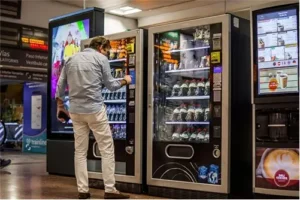
Buying a private hire mini bus can be an excellent investment for transport operators, school run services, or corporate travel providers. However, many buyers rush into a purchase without doing enough research — leading to expensive maintenance costs, compliance issues, or poor passenger satisfaction later on.
Choosing the right mini bus requires more than comparing prices; it’s about ensuring your purchase fits your business needs, meets licensing standards, and performs efficiently over time.
At Cabs 4 Less, we’ve helped countless drivers and business owners find reliable, compliant, and cost-effective vehicles. In this guide, we’ll outline the five most common mistakes to avoid when buying your next mini bus — and how to make a smarter investment for your business.
1. Not Defining Your Transport Requirements Clearly

Before browsing listings, take time to understand your operational needs. How many passengers will you typically carry? Will the mini bus be used for short local trips, airport transfers, or longer journeys? Do you need space for luggage, or accessibility for wheelchair users?
Failing to define these needs often results in buying a vehicle that’s too large, too small, or not fuel-efficient for daily use. Make a list of your essential features — such as seating configuration, fuel type, and comfort extras — and use it as a guide during your search.
2. Ignoring Licensing and Compliance for Private Hire Vehicles

Many buyers overlook the legal side of things. A vehicle may look great on paper but might not meet the local council’s licensing standards for private hire vehicles. Always confirm that the mini bus can be registered and insured for private hire work.
This includes checking MOT records, emission standards, and safety requirements such as seat belts, signage, and visibility. Buying a vehicle that doesn’t meet these regulations can delay operations and add unexpected costs.
Pro tip: Contact your local licensing authority before finalizing the purchase to ensure the vehicle is eligible for private hire registration.
3. Skipping Professional Inspection and Maintenance History

One of the biggest mistakes buyers make is trusting surface appearances. A shiny paint job doesn’t guarantee mechanical reliability. Before committing, always check the full service history, mileage, and any past accident reports.
Request a detailed inspection by a qualified mechanic. They can assess the engine condition, suspension, brakes, and electrical systems to ensure everything functions correctly. Even small issues can turn into expensive repairs later.
If you’re buying from a dealer, ask for a verified maintenance record. For private sellers, insist on an independent inspection. Remember — prevention is far cheaper than repair.
4. Rushing into a Purchase Without Comparing Private Hire Mini Bus for Sale Listings

A common pitfall is buying the first vehicle that seems “good enough.” Take your time to compare multiple private hire mini bus for sale listings to evaluate pricing, features, and mileage.
Market comparison helps you identify fair deals and spot overpriced or underperforming models. Look beyond price tags — consider warranty coverage, after-sales support, and long-term maintenance costs.
Check online reviews of both the dealer and the vehicle model to ensure you’re making a solid investment. A few hours of research can save thousands of pounds and years of regret.
5. Overlooking the Long-Term Benefits of a New Mini Bus for Sale

Sometimes, choosing a new mini bus for sale can be a more strategic decision than buying used. While upfront costs are higher, new models typically come with warranties, better fuel economy, and compliance with the latest safety and emission standards.
Modern minibuses often feature improved comfort, digital driver aids, and lower running costs — helping you build a more efficient and professional fleet. If your budget allows, a new mini bus can deliver stronger long-term value and fewer maintenance headaches.
Why Choose Cabs 4 Less for Your Next Mini Bus Purchase
At Cabs 4 Less, we simplify the process of finding a quality mini bus for your business. Our range of private hire and commercial vehicles is carefully vetted for performance, safety, and compliance.
We offer flexible finance options, honest pricing, and expert guidance — whether you’re expanding your fleet or replacing an old model. Every vehicle we list undergoes rigorous inspection, so you can focus on growing your transport business without worry.

FAQs
Q1. What should I check before buying a private hire mini bus?
Ensure the vehicle has a complete service history, valid MOT, and meets all local licensing standards. Always arrange for a mechanical inspection.
Q2. How can I tell if a dealer is reliable?
Look for established dealers with verified reviews, transparent pricing, and warranty coverage — such as Cabs 4 Less, which provides full documentation and quality checks.
Q3. Is it better to buy new or used?
It depends on your budget and business model. New models offer warranties and lower maintenance costs, while used ones can be more affordable upfront.
Q4. What’s the best seating capacity for a private hire business?
For small groups, 8-seater minibuses work well; for airport or school transfers, 12–16 seaters are ideal. Always match capacity to your customer demand.
Q5. Where can I find reliable private hire mini buses in the UK?
Visit Cabs 4 Less to explore a range of new and used private hire minibuses, each inspected for quality and compliance.
Conclusion
Buying a mini bus is a major step in growing your private hire or transport business. By avoiding these five key mistakes — from skipping inspections to ignoring compliance — you’ll protect your investment and build a more profitable operation.
Always do your research, consult experts, and purchase from trusted suppliers like Cabs 4 Less, where every vehicle is inspected, road-ready, and compliant with local licensing requirements.
Smart buying decisions today will lead to safer, smoother operations tomorrow.
